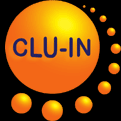Search Result
GUIDANCE ON THE ASSESSMENT AND MONITORING OF NATURAL ATTENUATION OF CONTAMINANTS IN GROUNDWATER.
CL:AIRE (Contaminated Land: Applications in Real Environments), Reading. ISBN 978-1-905046-42-3, 137 pp, 2024
Filed Under: General News
Filed Under: General News
This guidance updates the UK Environment Agency's technical guidance for monitored natural attenuation (MNA) published in 2000. It captures significant scientific advances that have been made in understanding contaminant behavior and reactive transport in the subsurface, alongside ongoing developments in site characterization, monitoring, and predictive modeling approaches and technologies. These evolving methods enhance contaminant and process-specific understanding required to develop advanced conceptual site models for MNA, addressing complexities and uncertainties that were previously challenging to deal with. These advancements further support the development of three lines of evidence typically considered to demonstrate the effectiveness of natural attenuation for risk management in groundwater:try-documents?download=993:mna-guidance
Filed Under: General News
Filed Under: General News
This guidance updates the UK Environment Agency's technical guidance for monitored natural attenuation (MNA) published in 2000. It captures significant scientific advances that have been made in understanding contaminant behavior and reactive transport in the subsurface, alongside ongoing developments in site characterization, monitoring, and predictive modeling approaches and technologies. These evolving methods enhance contaminant and process-specific understanding required to develop advanced conceptual site models for MNA, addressing complexities and uncertainties that were previously challenging to deal with. These advancements further support the development of three lines of evidence typically considered to demonstrate the effectiveness of natural attenuation for risk management in groundwater:
- Primary: reduction in contaminant concentration, mass and/or mass discharge in groundwater;
- Secondary: geochemical data and modeling that provides indirect evidence of the natural attenuation processes likely causing the observed reductions in contamination (primary line of evidence); and
- Tertiary: contaminant and/or process-specific evidence to support the primary and secondary lines of evidence.
The Technology Innovation News Survey welcomes your comments and
suggestions, as well as information about errors for correction. Please
contact Michael Adam of the U.S. EPA Office of Superfund and Emergency Management at adam.michael@epa.gov or (703) 603-9915
with any comments, suggestions, or corrections.
Mention of non-EPA documents, presentations, or papers does not constitute a U.S. EPA endorsement of their contents, only an acknowledgment that they exist and may be relevant to the Technology Innovation News Survey audience.




